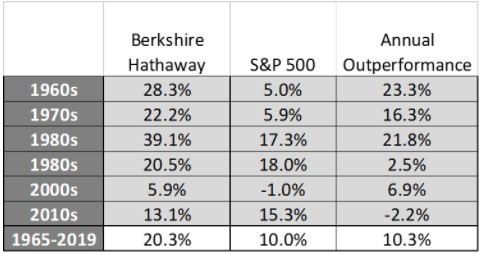What’s so great about Warren Buffett? wondered Shimon Kleinman. He knew the man was a billionaire investor, but that didn’t explain why Buffett’s name popped up all the time. The media often reported on Buffett’s latest business moves or his opinions on economic matters. Even a favorite column in the Voice of Lakewood quoted the guru’s parables and quips from time to time.
Why did this fellow’s opinions and decisions matter so much? More importantly, how could Buffett’s successes help improve Shimon’s own modest investment endeavors?
Crazy for Buffett
Public companies’ required annual shareholder meetings are usually poorly attended, boring affairs. But Berkshire Hathaway’s (BH) annual shareholder meetings attract tens of thousands of eager Warren Buffett fans from as far away as Omaha, Nebraska! For hours, the huge crowd peppers BH’s longtime CEO with questions and hangs on his every word. No billionaire is as adored and venerated as Buffett. Why this outpouring of admiration?
As Buffett grew his own wealth, he generated vast sums for those who invested alongside him. In this regard, he is unparalleled, and his investors love him for it.

Great But Not the Highest
From 1965–2019, Buffett and his fellow BH shareholders’ money has compounded at an annual rate of 20.3%. This return is about double the S&P 500’s (see table) and turned each dollar into $21,594 over that time frame (vs. $171 for the general stock market). But while this return is extremely impressive, Buffet’s track record is far from the highest. Jim Simons’ Medallion Fund returned a staggering 77% (before fees) annually for 30 years! George Soros, Stanley Druckenmiller, and Michael Steinhardt each earned over 30% annually for decades. All are billionaires with better track records than Buffett’s, but none are beloved or famous like Buffett is (though Soros is infamous).
Why so? From early on, Buffett viewed those who entrusted him with their money as his partners and friends. While most managers make vociferous claims about looking out for their clients’ best interests, Buffett walked the walk and put his money where his mouth was. The brilliant investor got rich, becoming one of the wealthiest men in the world. But along the way he rowed really hard for thousands of everyday people who jumped into his BH boat. This made his job much more difficult, but Buffett took great pride in the way he helped and stayed loyal to his “partners.”
Fee Friendly
The most obvious proof of Buffett’s commitment to his investors is the minuscule compensation he charged for his services. The $100,000 salary BH pays him, level for 25 years, is tiny relative to his CEO peers’. Even in 1970, way before Buffett became a billionaire, his $50,000 salary (or $335,000 in today’s dollars) was very modest for an investing genius. The average hedge fund manager takes about a third of their investors’ annual profits, but Buffett, one of the world’s best investors, took none! Leaving vast compensation potential in the BH pot was a significant factor that helped Buffett’s partners prosper.
Risk Reduction
If you care about your investors, you don’t risk their money flippantly. All investments entail risk, but Buffett was obsessive about managing his. BH always kept a massive cash reserve and low debt loads to cushion it from shocks. Buffett also minimized his risks by sticking to his “circle of competence,” not chasing fads he hadn’t mastered. Many of the money managers who beat Buffett’s returns, like Soros, often bet the entire pot of money in pursuit of massive profits. Plenty of their equals went bankrupt this way. Buffett aimed to make great returns despite taking less risks. And he succeeded.
A Rare Partnership
I’ve read all 55 lengthy annual shareholders’ letters Buffett has written (1965–2019). While typical shareholder letters are all fluff, Buffett singularly used his to communicate in plain English his investment philosophy, how he is running the company, and even any failures made by BH’s chairman, i.e., Mr. Buffett himself. This familiarity may seem strange until you also review BH’s unusual six-page “owner’s manual” which includes its 13 guiding principles (side note: a borrowed number perhaps?). The very first is (lightly edited):
Charlie [Munger] (Buffet’s partner) and I hope that you do not think of yourself as merely owning a piece of paper. We hope you instead visualize yourself as a part owner of a business that you expect to stay with indefinitely, much as you might if you owned a farm or apartment house in partnership with members of your family. For our part, we do not view Berkshire shareholders as faceless members of an ever-shifting crowd, but rather as co-venturers who have entrusted their funds to us for what may well turn out to be the remainder of their lives.
The Proof is in the Pudding
Buffett is revered not just as a great investor but also as a fantastic investment manager. It was important to him that all those who believed in him by investing in his company did as well as possible. Therefore, he structured his fees, risk parameters, and communication to be friendly to his “co-venturers.” While many investment managers get fabulously wealthy, none share their talents, bounty, and knowledge as generously as Buffett has. BH’s growth has turned many regular Joes into millionaires, even billionaires. Perhaps others can beat Buffett by percentages, but no financier can match the wealth he’s generated for others.
BH’s Real Takeaway
You may be tempted by now to dump all your savings in BH stock. Alas, as Buffett has predicted for a while, the company’s best years are behind it. This is also clear from the table’s numbers. The main takeaway from this article is to seek investment managers who don’t just create wealth, but also have a strong commitment to protecting their partners and sharing the pot fairly. Along with gross performance, investors need to consider managers’ fee structures, risk management, and commitment to transparency. What matters isn’t that a manager makes money, but that they make you money.